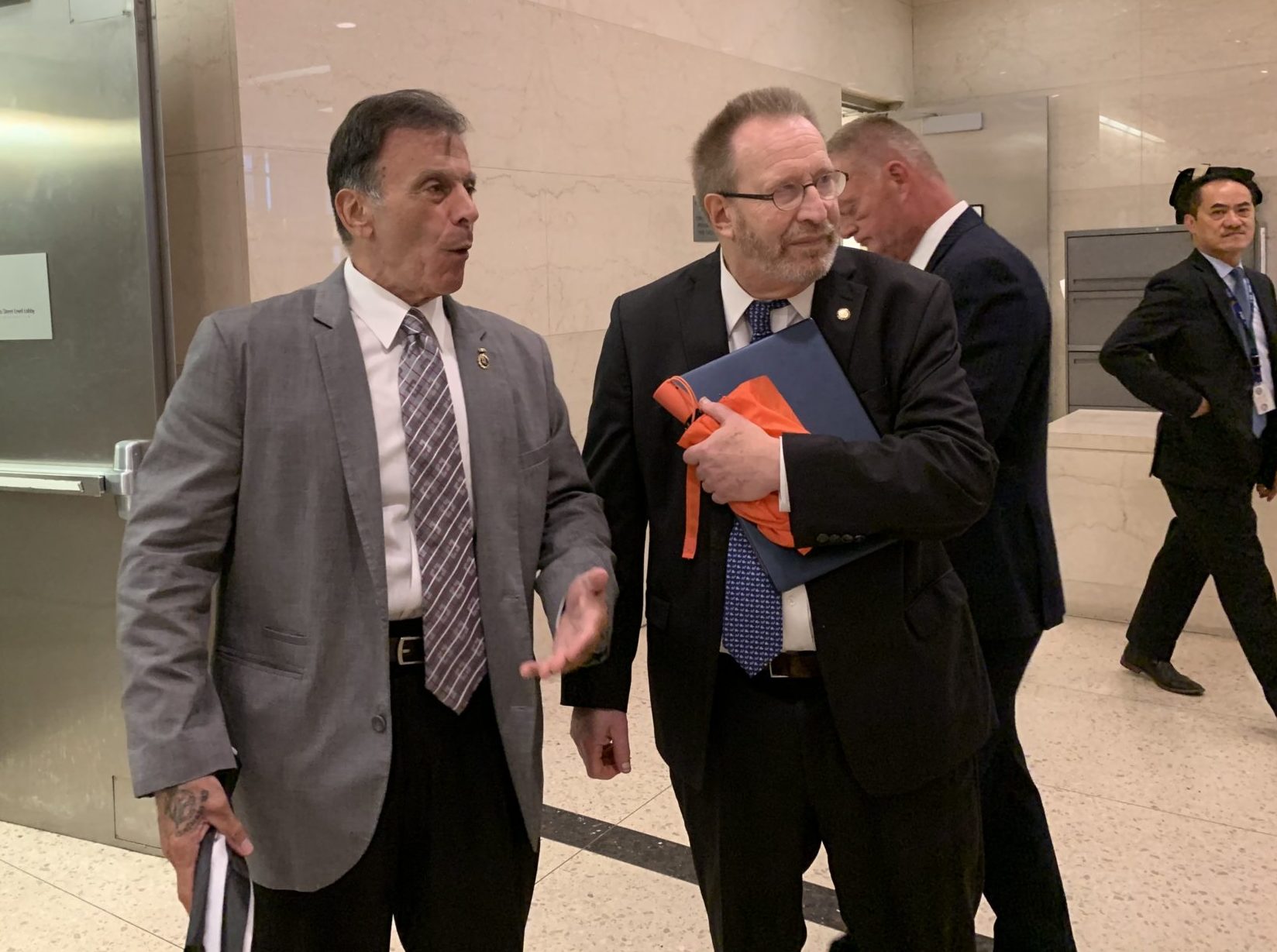Disgraced detective’s influence puts 1995 murder case into question

Former Det. Louis Scarcella (left) arrives at Brooklyn Supreme Court to testify in the hearing of Eliseo DeLeon. Eagle file photo by Noah Goldberg
A Brooklyn man looking to get his 1996 murder conviction overturned is hoping the fingerprints of disgraced former Det. Louis Scarcella on his case will help him get out of prison.
Scarcella testified in Brooklyn Supreme Court Tuesday and Wednesday in the case of Eliseo DeLeon, who was convicted of the 1995 Clinton Hill murder of Fausto Cordero.
DeLeon was allegedly trying to rob Cordero and shot him in the stomach. During a confession at the 79th Precinct after the killing, for which Scarcella, his partner Det. Stephen Chmil and one other detective were present, DeLeon allegedly told cops that the victim tried to grab the gun and it went off. DeLeon denies that he ever confessed and later refused to give a videotaped confession.
